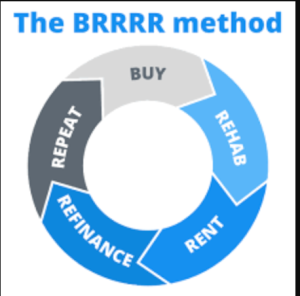Real estate is an excellent investment as it is one of the few assets that will increase in value over time. However, like any investment, it is not without its risks. For instance, it can take a while to sell property and you may not get as much as what you paid for it.
1. Home Equity Protection
Home Equity Protection is a financial contract that pays homeowners upon resale based on declines in a specific market index. Generally, these contracts are not insurance, and therefore do not require the buyer to have an insurable interest.
This strategy is often used in communities where property values may be susceptible to declines due to neighborhood stigma, changes in local economic conditions or other potentially self-fulfilling factors that can lead prospective buyers to avoid purchasing homes there. By offering this type of protection, these communities can help encourage buyers to invest in their neighborhoods.
A buyer’s home warranty is a good protection against appliances, water heaters, and plumbing issues that will save you from thousands of dollars in repair cost.
2.Strategic Debt
A real estate asset protection strategy is a plan that helps an investor protect their property from creditors and plaintiffs who win judgments against them in a lawsuit. This can include purchasing landlord insurance, forming an LLC, or using debt to limit the amount of equity that is at risk.
This is one of the oldest asset-protection strategies. It entails encumbering the property with so much debt that it’s unattractive to those seeking to perfect legal judgments against the property.
When investing in real estate, the return horizon is often shorter than with other investment options that may offer unlimited returns (in theory). This nimbleness can be advantageous in situations where time is of the essence. This is especially true for those looking to secure funding quickly.
3.Homestead Exemption
Homestead exemptions lower property taxes by shielding a portion of your home’s value from taxation. Local taxing authorities set these rates, and state governments offer this benefit to encourage homeownership, help the elderly, disabled or veterans and give residents a break from rising property taxes.
In most states, these laws also protect a home’s equity from creditors seeking to force a sale to satisfy debts. The amount that homeowners can exempt from taxation varies by state.
To take advantage of this benefit, homeowners can file a homestead exemption with their county appraisal district.
4.Insurance
Insurance is a great tool to protect investment properties, along with other business and personal assets from creditor claims. The last thing a real estate investor wants is for the assets they have worked so hard to build up to be used to pay damages agreed to in a lawsuit or awarded by a jury. Strategies for protecting investments include purchasing landlord insurance, holding property in an LLC, and conducting thorough tenant screening to ensure contractors are insured.
Residential and commercial investment properties have different risks, so a customized insurance plan is essential. A reputable insurance agent can help protect your investment portfolio with policies that provide the protection you need. For example, flips often undergo renovations that require a lot of work without the presence of tenants, so an insurance policy that shifts claim settlement from actual cash value to replacement cost is essential.
5.Tenant Screening
A good tenant is an asset to your property, but a bad one can keep you up at night worrying about unpaid rent and costly damage. A thorough Tenant Screening Background Checks process helps ensure that tenants are financially responsible and will not cause problems with your property.
Thorough vetting includes collecting rental application information, running credit and criminal history checks, verifying employment, and calling past landlords and references. The Fair Housing Act requires that landlords ask only legal and objective screening questions and avoid inquiries about protected characteristics such as family status or disability.
A comprehensive credit report also includes a ResidentScore that is focused on rental eviction risk and may help identify financial red flags such as delinquencies, outstanding debts or bankruptcies.





